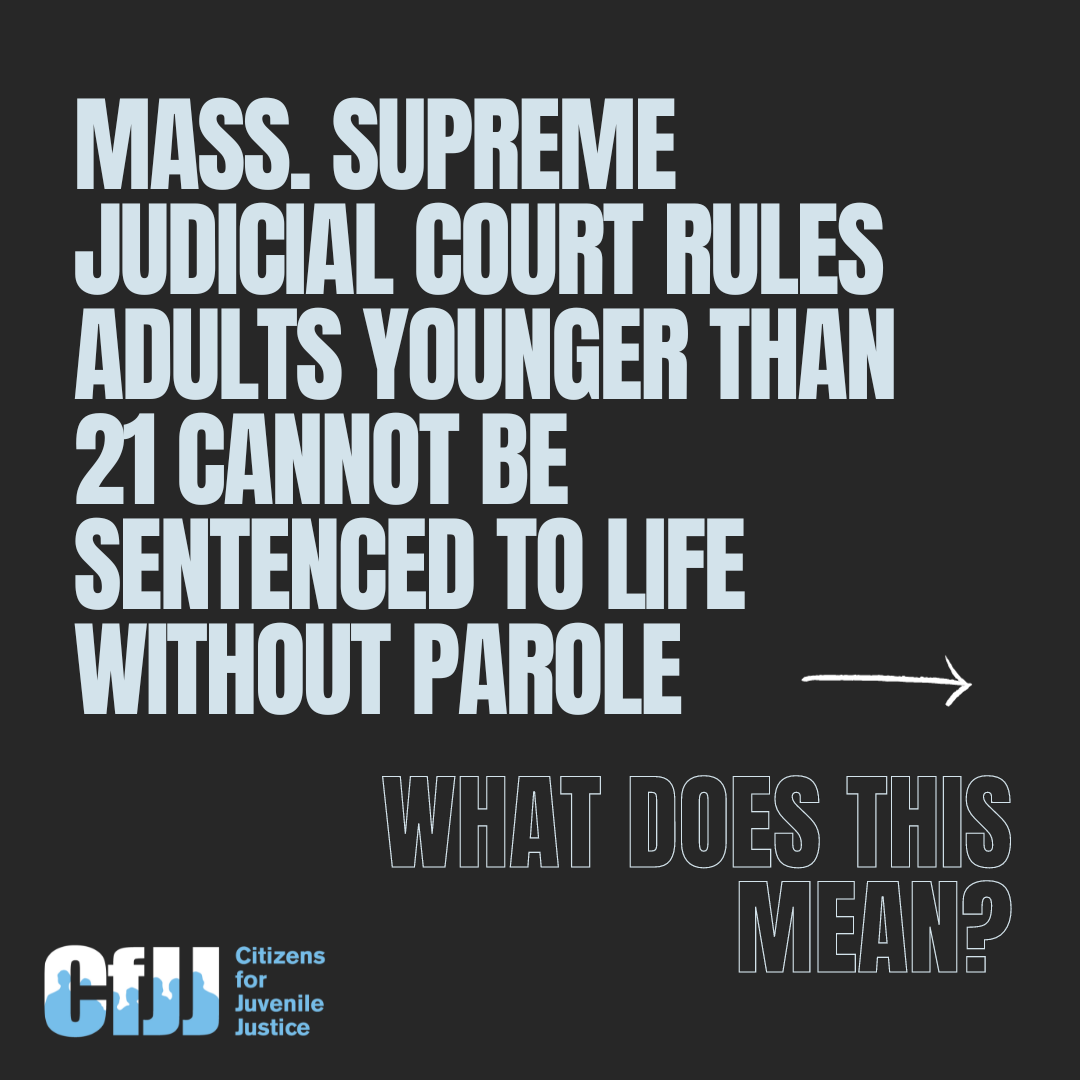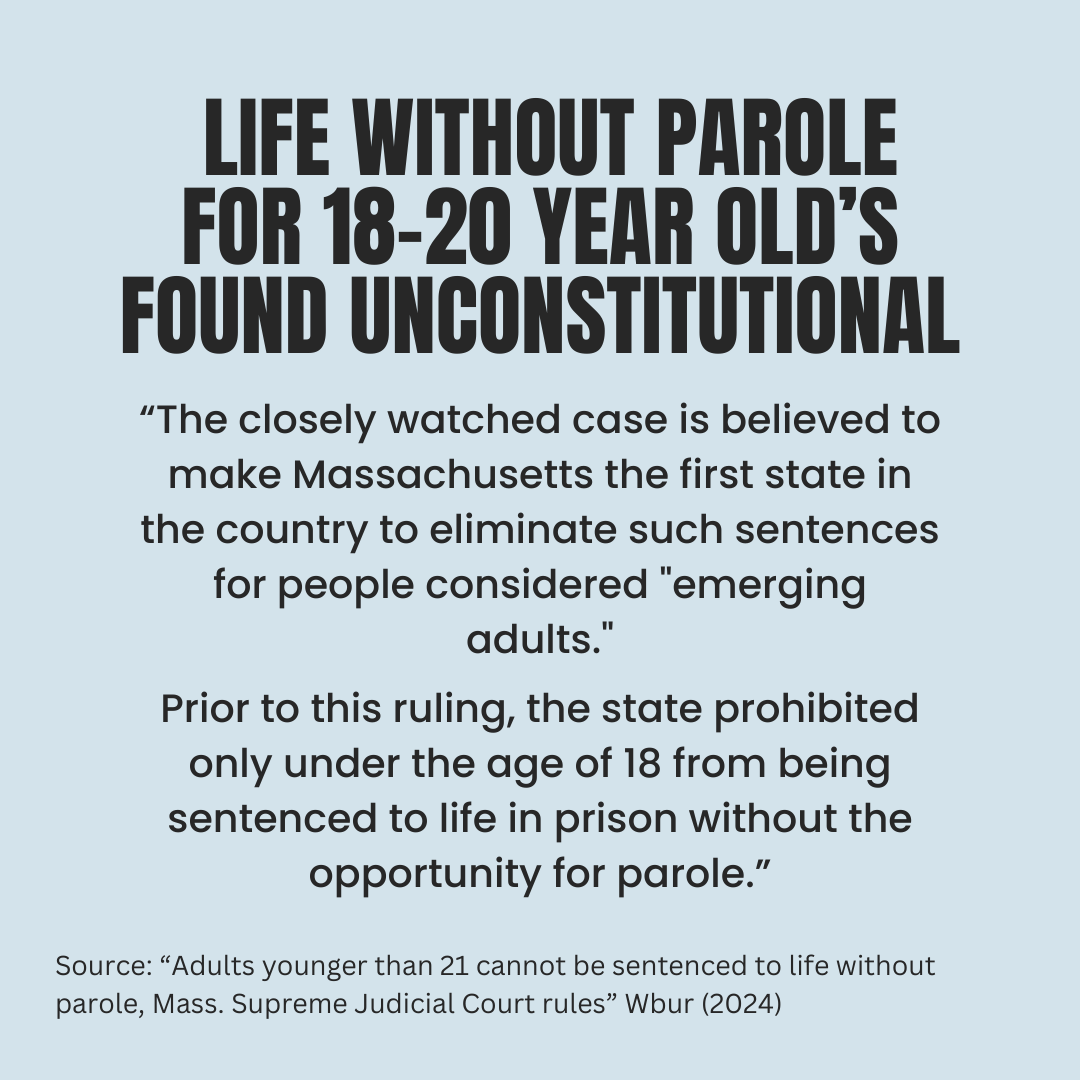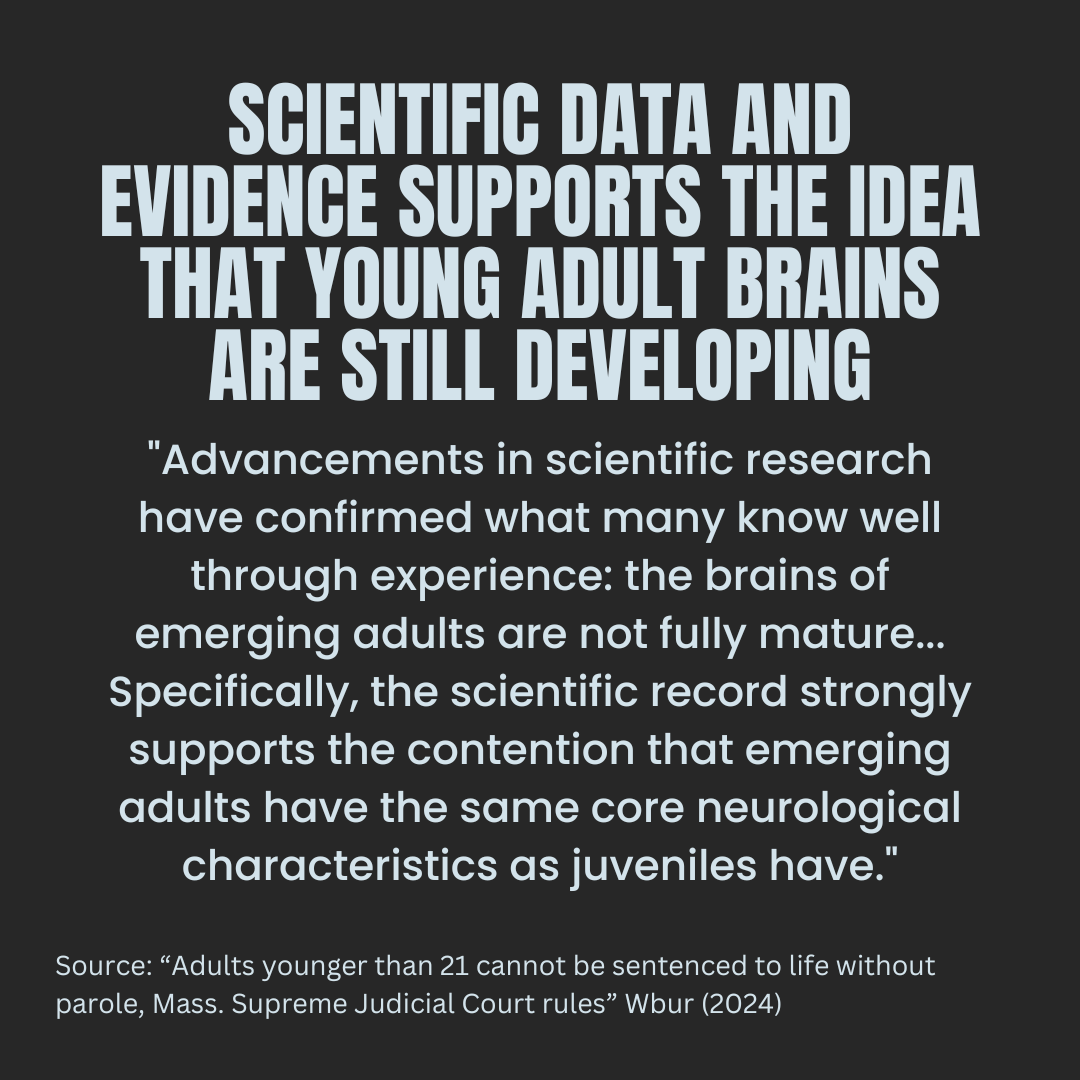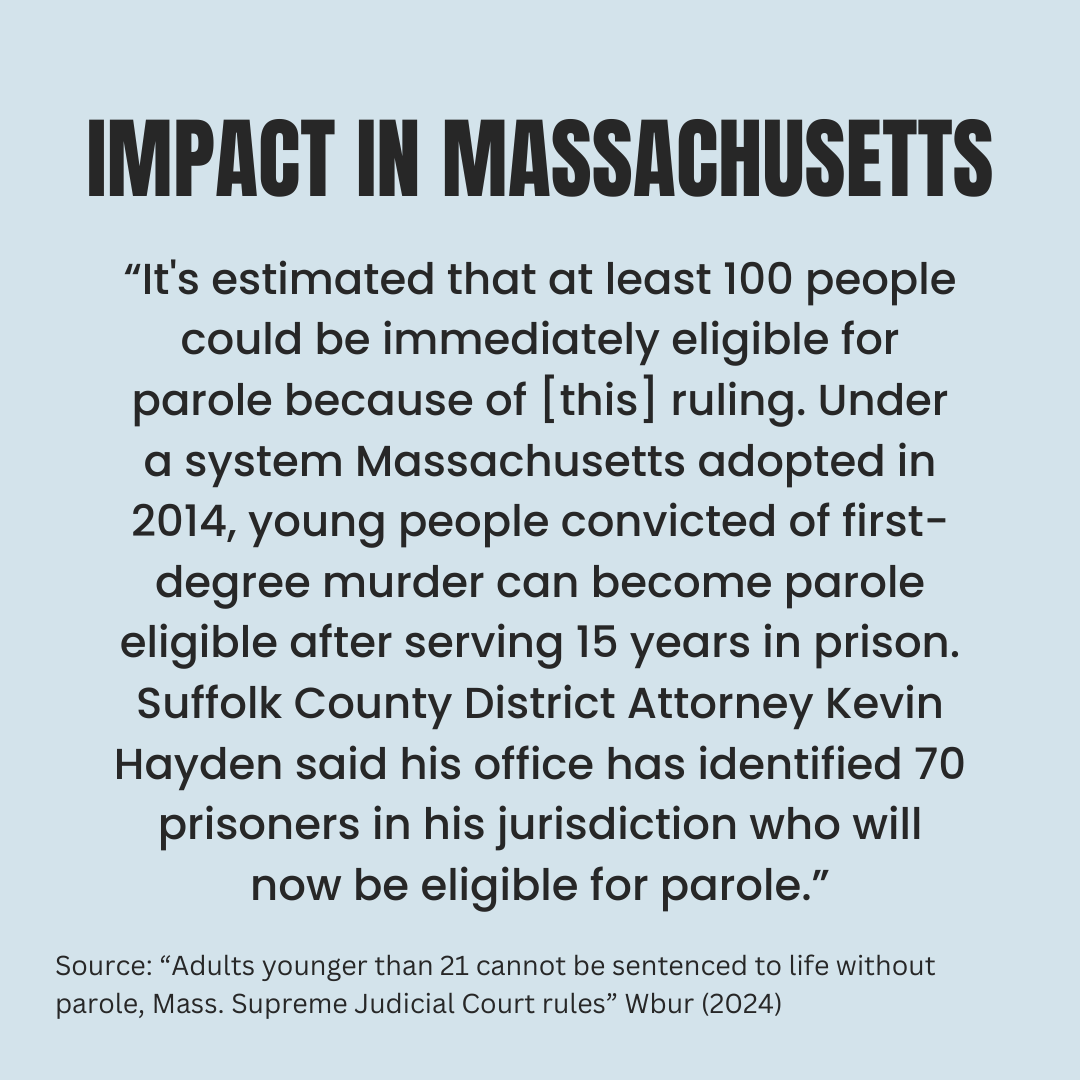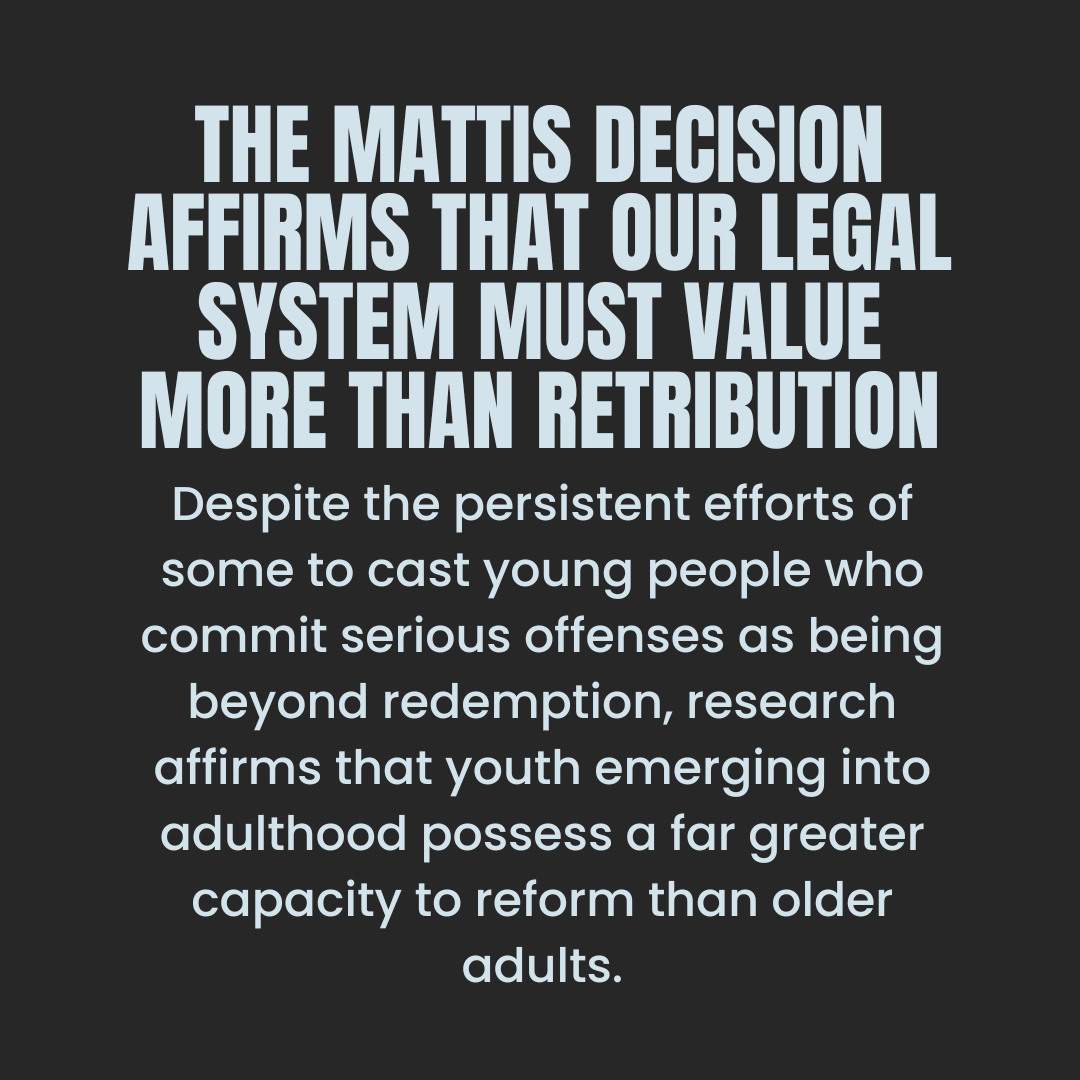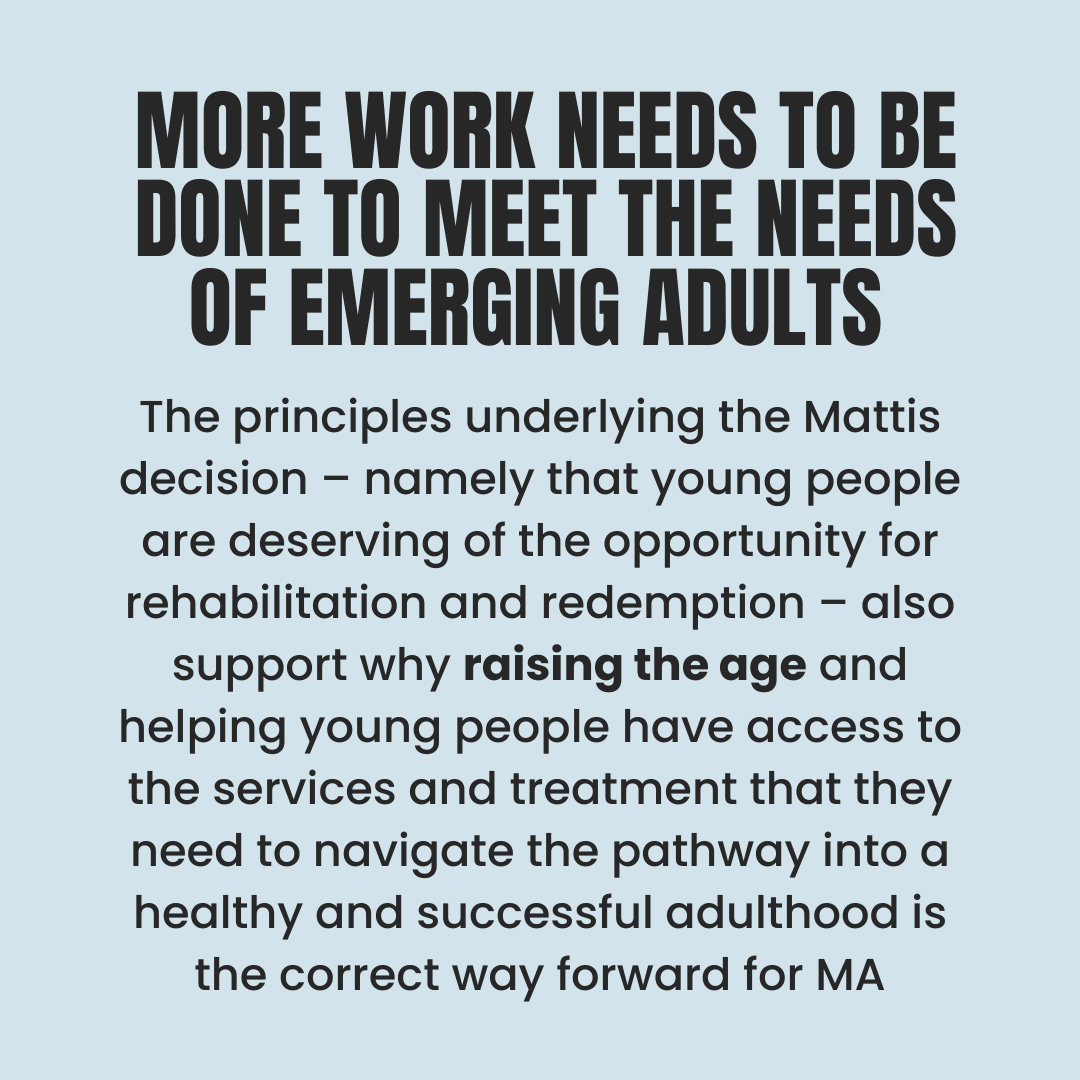Life Without Parole for 18-20 Year Old’s Ruled Unconstitutional
By: Leon Smith, Executive Director
January 11, 2024
WHAT THE SJC DECISION IN COMMONWEALTH V. MATTIS MEANS FOR YOUTH JUSTICE
In a monumental decision January 11, 2024, the Massachusetts Supreme Judicial Court ruled adults younger than 21 cannot be sentenced to life without parole. Prior to this ruling, the state prohibited individuals only under the age of 18 from being sentenced to life without parole.
CfJJ strongly commends the court for following the substantial body of scientific research on adolescent development in declaring that it’s now unconstitutional to sentence this still-developing population of adolescents to life-without-parole sentences. This decision marks a long-needed departure from bad, harmful policies from the 1990’s which impeded the ability of this population of young people to rehabilitate and earn an opportunity at redemption.
The Mattis decision also affirms that our legal system must value more than retribution, and that young people – even those who have committed horrible acts – are not irredeemable, cementing the reality that adolescents 18-20 are not finished products and different from older adults.
Despite the persistent efforts of some to cast young people who commit serious offenses as being beyond redemption, research affirms that youth emerging into adulthood possess a far greater capacity to reform than older adults. The SJC followed other courts who stood on this principle, namely United States Supreme Court who in the seminal case Roper v. Simmons stated that “from a moral standpoint it would be misguided to equate the failings of a minor with those of an adult, for a greater possibility exists that a minor’s character deficiencies will be reformed.”
Despite the tremendous impact of this decision, more work needs to be done in order to fully have our system meet the needs of youth emerging into adulthood. This includes the ongoing need for our legislature to raise the age of juvenile court jurisdiction. Cases that are eligible for life without parole actually make up a relatively small percentage of the total cases involving 18–20-year-olds. There are many harms that stem from involvement in the adult criminal legal system involvement – including collateral consequences of an adult record that hamper future outcomes and the lack of developmentally appropriate treatment that spurs high rates of recidivism for 18–20-year-olds. This population also becomes incarcerated in adult prisons and jails for less serious offenses, that the needs that these youth have can only be addressed through bringing them into the juvenile system where they can be held accountable in a developmentally appropriate fashion that is focused on addressing root causes of behavior and promoting rehabilitation.
The principles underlying the Mattis decision – namely that young people are deserving of the opportunity for rehabilitation and redemption – also support why raising the age and helping young people have access to the services and treatment that they need to navigate the pathway into a healthy and successful adulthood is the correct way forward for Massachusetts.


